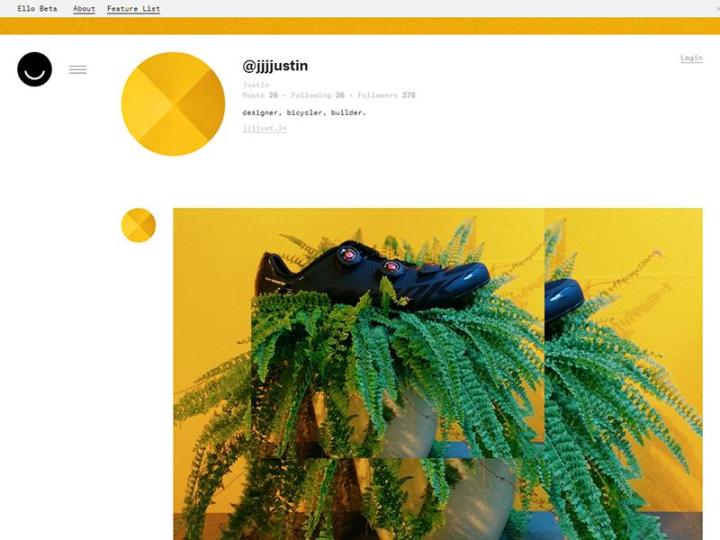
“Your social network is owned by advertisers,” runs the Ello manifesto. “Every post you share, every friend you make, and every link you follow is tracked, recorded, and converted into data. Advertisers buy your data so they can show you more ads. You are the product that’s bought and sold. We believe there is a better way.”
Still very much in beta, Ello has a work-in-progress feel about it. According to the most recent feature list you can upload content, comment on posts and mention other people using their handle, but there’s nothing as fancy as a news feed or a proper notification system. Interestingly, you can split the people you follow into “Friends” and “Noise” for easy management (handy if you want to be ‘friends’ with someone but never ever hear from them).
“We believe in audacity,” continue Ello’s developers in the site’s help pages. “We believe a social network can be a tool for empowerment. Not a tool to deceive, coerce, and manipulate — but a place to connect, create, and celebrate life. You are not a product.”
Without all those adverts, though, how does it make money? Ello wants to offer basic features for free and premium extras for a price, so you can chip in a few dollars for some special features further down the line. It’s too early to say whether Ello can make a dent in the Facebook and Twitter user numbers, but it’s an intriguing new take on what a social network can be.
Editors' Recommendations
- How to set your Facebook Feed to show most recent posts
- Facebook’s new controls offer more customization of your Feed
- What is Section 230? Inside the legislation protecting social media
- How to change your Twitter username and display name
- How to view Instagram Stories on your computer


